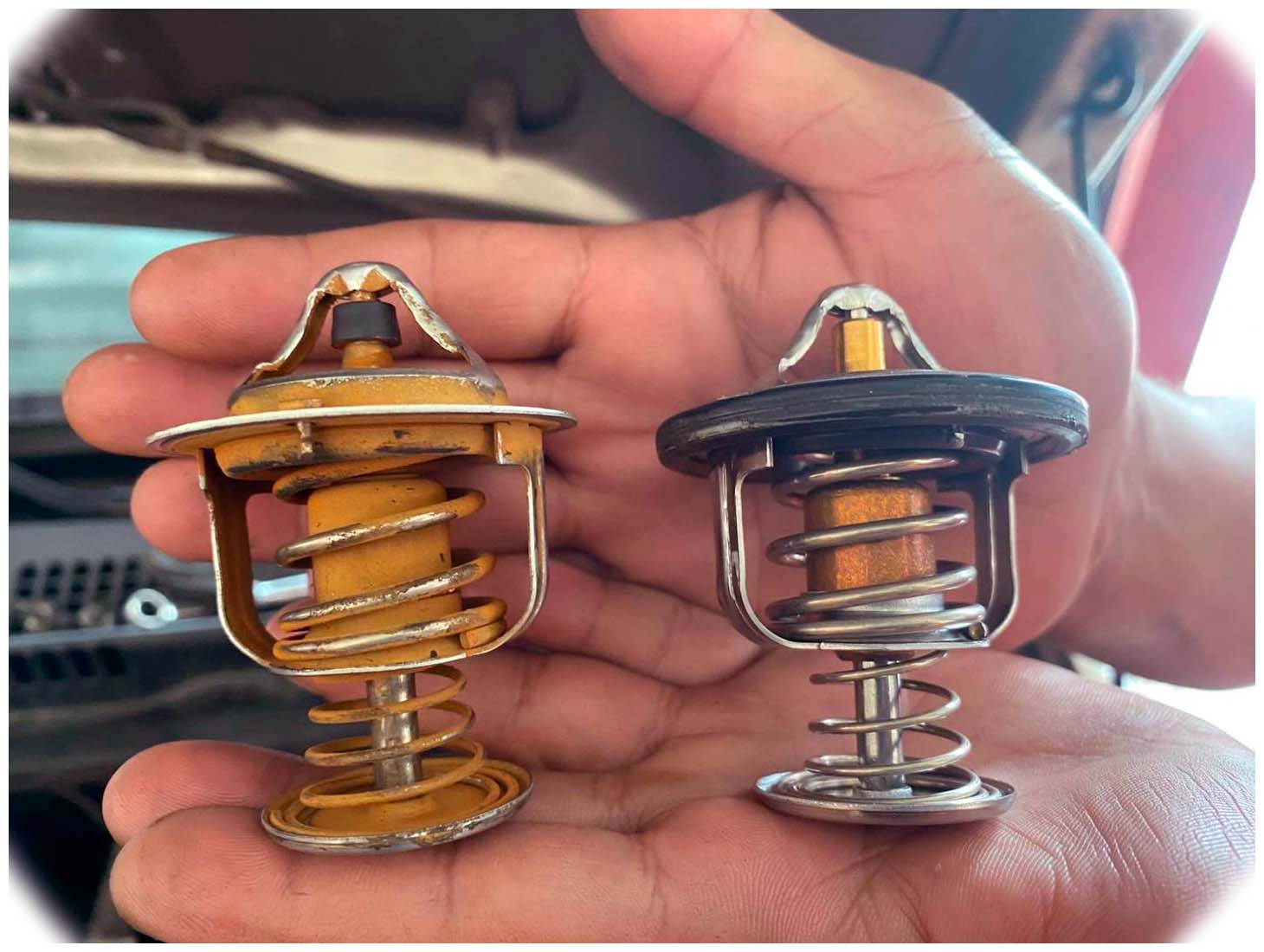Boiling Coolant: Causes, Consequences, And Solutions For Overheated Engines
Imagine being stranded on the side of the road, your car spewing steam like a dragon. Boiling coolant is a common culprit behind overheating engines, but don’t panic! Understanding the causes, consequences, and solutions can empower you to prevent costly breakdowns and keep your car running smoothly.
Boiling coolant is a symptom of an underlying problem that allows engine temperatures to rise dangerously high, causing engine damage and even engine seizure. It can occur due to factors such as a lack of coolant, a faulty thermostat, or a clogged radiator.
To address boiling coolant, diagnosing the root cause is crucial. It may involve checking coolant levels, inspecting the thermostat, and examining the radiator and hoses for leaks or blockages. Once the underlying issue is identified, repairs or replacements can be made to restore proper cooling system function and prevent future overheating.

Personal Experience with Boiling Coolant
I recall a harrowing experience where my car began to overheat on a busy highway. Steam billowing from the hood, I pulled over and discovered boiling coolant. After a thorough inspection, I realized the coolant reservoir was nearly empty. As I filled the reservoir and topped up the coolant, I felt a surge of relief mingled with frustration. Understanding the importance of regular coolant maintenance and timely repairs became crystal clear from that day forward.
Coolant plays a vital role in transferring heat away from the engine and preventing it from overheating. Its composition includes antifreeze to prevent freezing in cold weather and anti-corrosion additives to protect metal components. Regular coolant flushes and replacements are essential to maintain its effectiveness and prevent the accumulation of harmful deposits and debris.

History and Myths of Boiling Coolant
The history of coolant use dates back to the early days of internal combustion engines. Early coolants were often water-based, but the introduction of antifreeze revolutionized engine protection. However, myths and misconceptions surrounding coolant have persisted.
One myth suggests that adding water to coolant is acceptable. While adding water may temporarily lower engine temperatures, it dilutes the coolant’s vital additives and reduces its effectiveness. Another myth claims that coolant can last indefinitely. However, coolant degrades over time, losing its anti-corrosion properties and increasing the risk of coolant failure.

Hidden Secrets of Boiling Coolant
Beyond the immediate causes and consequences, boiling coolant can reveal underlying engine issues. A persistent overheating problem may indicate a more serious mechanical fault, such as a blown head gasket or a cracked engine block.
Ignoring the symptoms of boiling coolant can lead to catastrophic engine failure. Therefore, it’s crucial to seek professional assistance, especially if the overheating persists or is accompanied by other symptoms such as loss of power, smoke, or strange noises. Early detection and repair can prevent extensive and costly damage.

Recommendations for Preventing Boiling Coolant
Preventing boiling coolant is essential for maintaining engine health and avoiding costly repairs. Regular coolant maintenance is key, including periodic flushes and replacements as per the manufacturer’s recommendations.
Check coolant levels frequently and top up as necessary. Never open a hot cooling system, as the release of pressurized steam can cause severe burns. It’s also important to inspect the radiator and hoses regularly for leaks or blockages that could restrict coolant flow.
How to Check Coolant Levels
Checking coolant levels is a quick and easy task that should be part of regular vehicle maintenance. Follow these steps:
- Allow the engine to cool completely.
- Locate the coolant reservoir, usually a translucent plastic container near the engine.
- Check the coolant level against the “cold” or “full” marks on the reservoir.
If the coolant level is below the “cold” mark, add a 50/50 mixture of coolant and water until it reaches the appropriate level.

Tips for Maintaining a Healthy Cooling System
Here are some additional tips to keep your car’s cooling system in optimal condition:
- Never run your car with low coolant levels, as this can quickly lead to overheating.
- Change your coolant and antifreeze according to the manufacturer’s recommendations. Most coolants should be changed every 30,000 to 60,000 miles.
- Regularly inspect your radiator and hoses for leaks or blockages.
- Pressure test your cooling system to ensure that there are no leaks in the system.
By following these tips, you can help to prevent boiling coolant and keep your car’s cooling system running smoothly.

Importance of Regular Coolant Maintenance
Regular coolant maintenance is vital for preventing boiling coolant and costly engine damage. Neglecting coolant maintenance can lead to the formation of deposits, corrosion, and blockages that impair the cooling system’s efficiency.
Ignoring coolant-related issues can have severe consequences, including:
- Engine overheating
- Reduced engine efficiency
- Costly repairs or replacement of the cooling system
Investing in regular coolant maintenance is undoubtedly a small price to pay for the long-term health and reliability of your vehicle.

Fun Facts about Boiling Coolant
Here are a few fun facts you may not know about boiling coolant:
- Coolant can boil at temperatures as low as 212°F (100°C) if the cooling system is pressurized.
- Antifreeze is not just for preventing freezing; it also helps to raise the boiling point of coolant.
- Boiling coolant can produce steam, which can cause serious burns if it comes into contact with skin.
Knowing these fun facts can help you to appreciate the importance of coolant maintenance and its role in keeping your car running smoothly.

How to Fix Boiling Coolant
If you find yourself with boiling coolant, there are a few things you can do to fix the problem:
- Pull over to a safe location and turn off the engine.
- Allow the engine to cool down for at least 30 minutes.
- Check the coolant level and add more if necessary.
- Inspect the radiator and hoses for leaks or blockages.
- If you cannot find the cause of the boiling coolant, call a mechanic.
Boiling coolant is a serious problem that should not be ignored. By following these steps, you can help to fix the problem and prevent further damage to your car.

What if Boiling Coolant Is Ignored?
Ignoring boiling coolant can have severe consequences, including:
- Engine damage
- Overheating
- Stalling
- Costly repairs
In severe cases, ignoring boiling coolant can even lead to engine failure. Therefore, it is imperative to address the problem as soon as possible.
Listicle of Boiling Coolant Causes, Consequences, and Solutions
- Causes: Low coolant levels, faulty thermostat, clogged radiator, water pump failure.
- Consequences: Overheating, engine damage, stalling.
- Solutions: Check coolant levels, replace thermostat, clean radiator, replace water pump.
By understanding these causes, consequences, and solutions, you can help to prevent boiling coolant and keep your car running smoothly.
Frequently Asked Questions (FAQs)
What are the signs of boiling coolant?
The signs of boiling coolant include:
- Steam coming from the engine
- Overheating engine
- Loss of power
- Strange noises coming from the engine
What should I do if my coolant is boiling?
If your coolant is boiling, you should:
- Pull over to a safe location and turn off the engine.
- Allow the engine to cool down for at least 30 minutes.
- Check the coolant level and add more if necessary.
- Inspect the radiator and hoses for leaks or blockages.
- If you cannot find the cause of the boiling coolant, call a mechanic.
How can I prevent my coolant from boiling?
You can prevent your coolant from boiling by:
- Checking coolant levels regularly.
